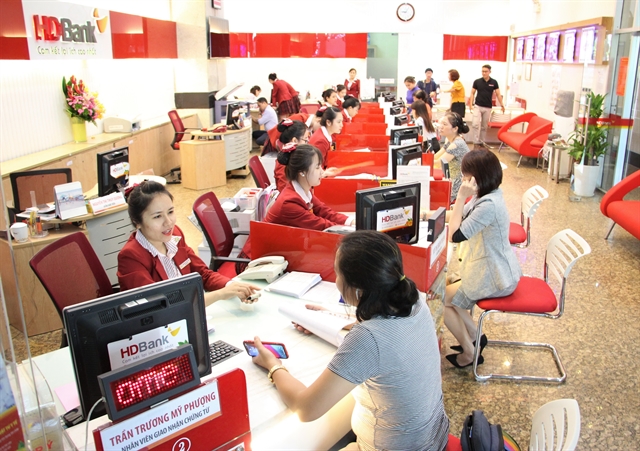
HÀ NỘI — Việt Nam needed to invest in the digital economy and seize the opportunities it provided to improve labour productivity.
The information was released at the annual Vietnam economic evaluation report released by the National Economics University on Monday. The annual report aims to provide an overall evaluation of the economy and prospects for upcoming years.
The report showed that the digital economy could contribute 7 to 16.5 per cent a year to labour productivity growth from 2020-30. This means the digital economy could play an important role in the productivity and effectiveness of the economy.
Researchers from the university said the digital economy would influence the productivity of sectors relating to science and technology, finance, banking, insurance, real estate and information.
It was forecast that the industrial and construction sector would contribute 56 per cent to the country’s labour productivity growth in the next decade. Of which, the manufacturing and processing industry would take the lead for labour productivity growth in the country.
Prof Trần Thọ Đạt, chairman of the university’s council and a member of the Prime Minister's Economic Advisory Group, said this was the first research in Việt Nam to quantify the impacts of the digital economy on labour productivity, whilst looking towards 2030.
The report includes research from both official and unofficial economic sectors as well as household businesses. In addition, it also looked at the impacts of COVID-19 on the economy and policy suggestions in response to the pandemic.
Tô Trung Thành, head of the university’s Science Management Department and co-editor of the report, said the main message of the publication was that in the context of the economy being hit by big shocks like COVID-19, it was time to review the foundations of the economy. It would be an opportunity to restructure, he added.
Labour productivity in Việt Nam was at a very low level and increasingly lagging behind other countries in the region and around the world. Incentives for productivity growth had also been exhausted and ineffective.
It was the reason that digital economy would be an opportunity for improving labour productivity, thus achieving sustainable development and at the same time withstand shocks from the outside.
Nguyễn Kim Hùng, deputy head of the Science Institute on Small-and-medium Enterprises Management (SISME), said COVID-19 had hit production and business activities, especially the tourism, transport and restaurant sectors. Of which, many companies had seen a sharp decline in turnover and zero profit. In the first quarter of the year, 35,000 more businesses halted operations than new operations were established.
However, Hùng said it was time to screen more qualified businesses and help them change management and business methods using a digital transformation platform.
Đỗ Hoài Nam, chairman of UPGen Vietnam, said Việt Nam was hard to compare with other countries in terms of science and technology, but it had a pretty big market.
Digital platforms have contributed an important part to creating a favourable business environment, especially in technology services such as map apps and website design, he said.
Online sales revenue of some supermarkets in Hà Nội had increased by 20 per cent amid the COVID-19 outbreak. Specialists in the e-commerce sector said many firms would have been forced to close without electronic transaction floors such as Tiki, Lazada and online distribution channels.
Vũ Tú Thành, deputy regional managing director of the US-ASEAN Business Council in Việt Nam, said the Government should manage companies doing business on digital platforms based on the number of transactions, then calculate the benefit sharing ratio of said parties. This would form the basis to calculate taxes, fees and the responsibilities of related parties. — VNS






























